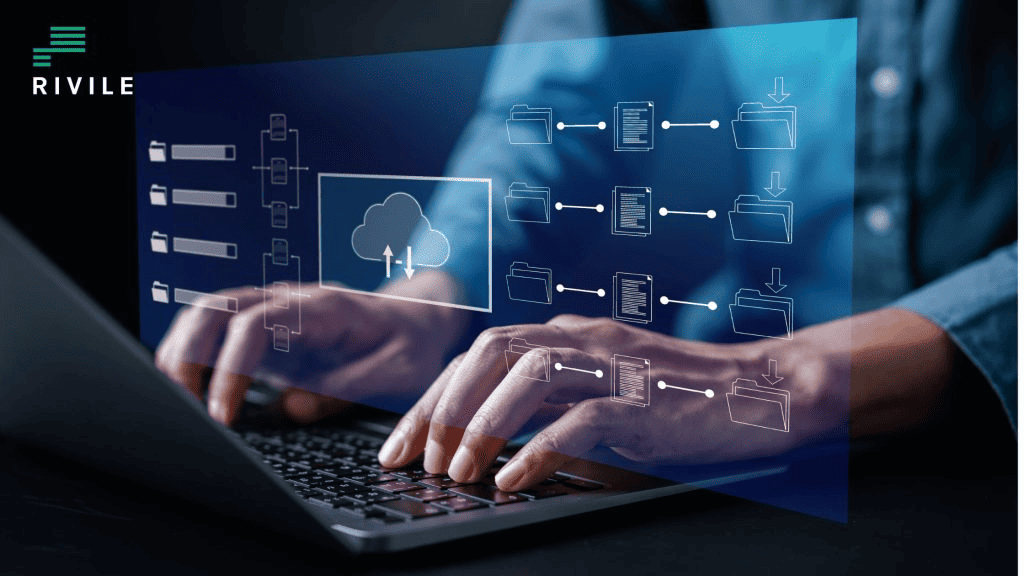What Is ERP? Why This System Matters for Modern Businesses in Lithuania

Modern companies increasingly face the need to digitize processes, manage data efficiently, and adapt quickly to market changes. One of the key tools enabling this transformation is ERP—Enterprise Resource Planning. But what exactly is ERP, and why is it so important for businesses in Lithuania?
What Is ERP?
ERP (Enterprise Resource Planning) is integrated software designed to manage core business processes such as finance, accounting, inventory, manufacturing, customer service, and supply chain operations. As Hurbean and Fotache (2014) define it, “ERP is an integrated business application package that supports a unified process and data model for managing financials, human resources, distribution, manufacturing, service, and supply chain operations.”'
According to the master’s thesis “Impact of Perceived Business Model on ERP Choice” by V. Kontrimas (ISM University of Management and Economics, 2021), the term ERP emerged in 1992 when MRP systems evolved into more comprehensive solutions. Later developments led to ERP II, which incorporated CRM, BPM, e-commerce, and web technologies, and ERP III—“borderless” organizations integrating cloud computing and social platforms.
Why ERP Is Crucial for Lithuanian Businesses
In Lithuania, where small and medium-sized enterprises dominate the business landscape, ERP systems help:
- Automate accounting and financial processes
- Optimize inventory and supply chain management
- Improve customer service
- Ensure data security and compliance with regulations
These benefits are highlighted in Kontrimas’s thesis, which analyzes ERP’s impact across organizations of varying sizes in Lithuania. Rivile, a leading ERP and accounting system provider, offers solutions tailored specifically to the Lithuanian market—meaning localized functionality aligned with national accounting standards and business needs.
ERP System Classification
ERP solutions are categorized based on company size and operational complexity. Kontrimas’s thesis outlines four ERP tiers:
ERP Tier
Company type
Description
ERP Tier
TIER I
Company type
Large multinational corporations
Description
High-end ERP solutions for complex, global organizations
ERP Tier
TIER II
Company type
Regionally integrated international firms
Description
ERP systems suited for regional or limited-scope international operations
ERP Tier
TIER III
Company type
Medium-sized companies
Description
Solutions for growing businesses with multiple departments or operational areas
ERP Tier
TIER IV
Company type
Small businesses focused on accounting
Description
Simplified ERP systems primarily covering finance and accounting functions
This classification helps businesses identify the most suitable ERP solution based on their size, operational scale, and process complexity.
ERP Deployment Models
ERP systems can be deployed in several ways:
- On-premises – hosted and managed internally
- SaaS – software as a service
- PaaS / IaaS – platform and infrastructure as a service
“SaaS is particularly suitable for small and medium-sized enterprises due to lower upfront costs and greater flexibility” (Kontrimas, 2021). Klaus and Elmmers (2016) further note that cloud-based ERP enables faster implementation and reduces IT infrastructure expenses.
ERP Market Trends
The global ERP software market is expanding rapidly. In 2024, it was valued at USD 64.83 billion, and by 2030, it is projected to reach USD 123.41 billion, growing at a compound annual rate of 11.7% (Grand View Research, 2025). Key growth drivers include the rising demand for data-driven decision-making, process digitization, and cloud adoption.
In Lithuania, digital transformation is accelerating—especially in finance, accounting, and logistics. Small and medium-sized enterprises increasingly adopt SaaS-based ERP solutions that allow quick onboarding without significant initial investment.
Rivile – A Trusted ERP Partner
Rivile provides ERP solutions localized for the Lithuanian market, fully supported in the Lithuanian language and compliant with national regulations. Companies choosing Rivile benefit not only from robust technology but also from expert guidance backed by years of experience.
Conclusion
ERP is more than just software—it’s a strategic business tool that enables companies to manage resources efficiently, streamline operations, and make informed decisions. In Lithuania’s SME-driven economy, ERP systems are essential for growth, competitiveness, and transparency.
Choosing the right ERP solution—one that aligns with your company’s size, business model, and operational needs—can significantly enhance performance. Rivile, as a trusted ERP partner, offers localized solutions and expert support to help businesses transition smoothly into the digital era.
References
- Kontrimas, V. (2021). Impact of Perceived Business Model on ERP Choice. Master’s thesis, ISM University of Management and Economics, Vilnius.
- Hurbean, L., & Fotache, D. (2014). ERP Systems and Business Process Management. Annals of the University of Oradea, Economic Science Series.
- Esteves, J., & Pastor, J. (2001). Enterprise Resource Planning Systems Research: An Annotated Bibliography. Communications of the Association for Information Systems.
- Klaus, H., & Elmmers, M. (2016). ERP Implementation and Cloud Computing. Journal of Enterprise Information Management.
- Osterwalder, A., & Pigneur, Y. (2010). Business Model Generation. Wiley.
- Grand View Research. (2025). ERP Software Market Size & Share | Industry Report, 2030.
.png)
.png)
